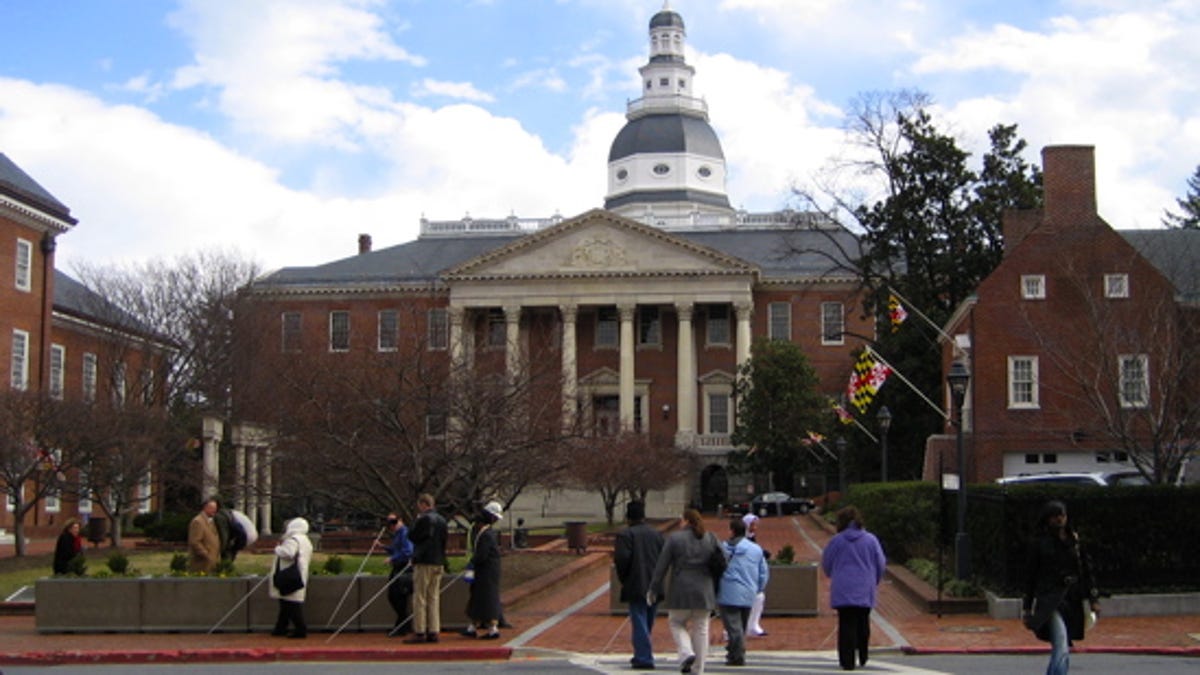Blind advocates lobby for noisier hybrid cars
They say the clean vehicles' silent nature poses real threats to pedestrians, blind and otherwise, and call for laws to encourage--or, better yet, require--minimum noise output.

ANNAPOLIS, Md.--Hybrid cars may be on every environmentalist-cum-trend setter's hot list, but their surging popularity is raising alarms among the blind and their advocates, who fear the near-silent vehicles could endanger lives.
In recent months, the National Federation of the Blind has launched what is becoming an international lobbying campaign for legislation that encourages--or flat-out requires--automakers to install noisemaking technology to address those potential perils.
Top NFB leaders focused their efforts Tuesday on this quaint state capital on the Chesapeake Bay, where legislation creating a state "Quiet Vehicles and Pedestrian Safety Task Force" is pending. If Maryland passes the bill, it would be the first in the nation to take action on that front, although other states are considering similar proposals.
"As we increase the number of quiet vehicles on our streets, we increase the risk that blind and other pedestrians face," Jim McCarthy, the National Federation of the Blind's director of government affairs, told members of the Maryland Senate Judicial Proceedings Committee at a hearing about the bill. "We potentially lose our independence if these become ubiquitous."
Ideally, blind advocates would like to see states pass laws that would set minimum sound standards for hybrid and electric vehicles, but they've run into resistance from automakers on that front. McCarthy said his group views the Democratic-sponsored Maryland bill as a good "first step," although he noted that legislatures in Virginia and Hawaii are poised to consider bills that would go further.
The Maryland state bill, which also has a counterpart in the state House of Representatives, would not set any particular rules for cars bought and sold in the state. But, if passed, it would instruct a task force to make recommendations by the end of the year on "a minimum sound level and the nature and characteristics of the minimum sound to be required for all vehicles sold and licensed in the state."
The blind community is also taking its push to Congress--and abroad. On Tuesday, the NFB president was in Geneva, Switzerland, testifying about the dangers of hybrid vehicles to the blind at the World Forum for Harmonization of Vehicle Regulations, a United Nations body, according to NFB spokesman Chris Danielsen.
McCarthy and other NFB leaders sought to dispel any accusation that they're hostile to environmental progress. They said they're as pleased as anyone else about states like Maryland that have passed laws requiring a certain percentage of vehicles sold in the state by 2011 to produce low emissions.
The trouble, from their perspective, is that the growing number of vehicles that cannot be heard while operating in electric-power mode throws a wrench in a blind person's ability to negotiate street traffic confidently and independently. And, in an effort to win broader support, they're emphasizing that this isn't just a problem for blind people: All pedestrians and bicyclists should be concerned for their safety.
Carmakers, not surprisingly, have bristled at the notion of regulations requiring them to adopt a specific technology in their hugely successful hybrid vehicles. The Maryland bill clearly attempts to blunt some of those gripes by specifying that task force members are not "required" to specify a certain technology that car manufacturers must use to meet recommended noise levels.
No car industry representatives were present at Tuesday's hearing here, but in a letter to the state senate committee, the Alliance of Automobile Manufacturers said it supported the bill, albeit not without reservations.
The trade association--which represents BMW, Ford Motor, General Motors, Toyota, Volkswagen, and other major carmakers--said it would be pleased to take a seat on the task force but worried the bill puts too much emphasis on noise-generating technology alone.
The car makers encouraged legislators to be open-minded about the range of technologies that could be used to resolve the blind community's concerns and also noted that a committee established within the Society of Automotive Engineers, an industry-sponsored group, is already researching such approaches.
For instance, they pointed to the potential use of a forthcoming wireless warning system that will allow cars to talk to each other and to roadway infrastructure. That system, known as Dedicated Short Range Communications, or DSRC, could be used to warn pedestrians, blind or otherwise, of oncoming cars with "far more specificity, meaning, and context" than a simple noise generator, but the wording of the current Maryland bill seems to preclude the task force from considering that option, the AAM suggested.
It wasn't immediately clear what the bill's chances of passage were. Legislators on the Senate committee had few questions for the bill's advocates and did little to show their leanings. The Maryland Department of Transportation, for its part, said in a statement that it supports the measure because it views quiet vehicles as an "emerging" safety issue that warrants more research. (There was no mention from the various stakeholders of what role that drivers could or should play in ensuring pedestrian safety.)
Michael Gosse, president of the National Federation of Blind of Maryland, said all his group wants is a cost-effective solution based on the sounds that cars are already capable of making.
"I don't know about you," he told the state senate committee, "but I don't want cars going down the street beeping like those little carts do in the airport. I think that would be pretty annoying."